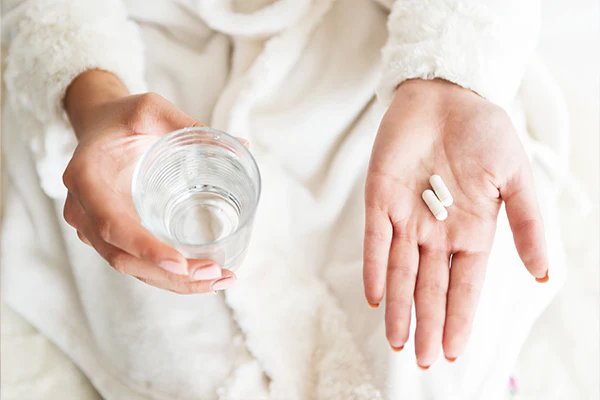When people think of collagen, they often associate it with anti-aging, wrinkle reduction, and improving skin elasticity. But what about acne and acne scars? Can this powerhouse protein also play a role in calming breakouts and helping the skin recover from damage?
Surprisingly, yes.
Recent studies and dermatological insights suggest that drinkable collagen may offer real benefits for people struggling with acne-prone skin and post-acne scarring. Not only can it support the healing process, but it may also help strengthen the skin barrier and reduce inflammation—two key issues in chronic acne.
Let’s explore how collagen works beneath the surface, what the science says, and how a supplement like collagene da bere can become a valuable part of your skincare strategy.
Understanding the Link Between Collagen and Acne
Acne is a complex condition, usually involving:
- Excess sebum production
- Clogged pores
- Bacterial overgrowth (C. acnes)
- Inflammation
- Compromised skin barrier
While collagen doesn’t directly target oil glands or bacteria, it plays a vital role in supporting skin structure, reducing inflammation, and accelerating tissue repair—all of which are relevant in both active acne and post-acne recovery.
Here’s how collagen helps:
1. Collagen Supports Skin Healing
Every time you get a pimple, especially cystic acne, your skin undergoes an inflammatory cycle that damages the dermis. When the skin tries to repair itself, it needs the raw materials—like collagen—to rebuild effectively.
If your body lacks sufficient collagen (common after age 25 or in those with nutrient deficiencies), it can result in:
- Prolonged healing time
- More visible scars
- Weaker skin barrier, increasing the chance of reinjury
Drinkable collagen delivers bioavailable peptides that travel to the dermis and signal fibroblasts to produce new collagen and elastin—essential for tissue regeneration and smoother skin.
2. Collagen May Help Reduce Inflammation
Chronic inflammation is a key factor in acne. Glycine, one of the primary amino acids in collagen, has well-documented anti-inflammatory properties.
By reducing inflammation at the cellular level, collagen may:
- Calm active breakouts
- Support faster resolution of red, irritated pimples
- Improve skin comfort and reduce sensitivity
Combined with a healthy diet and lifestyle, collagen helps restore balance to inflamed skin.

3. It Strengthens the Skin Barrier
A damaged skin barrier allows more irritants, bacteria, and pollution to penetrate the skin—making acne worse. Collagen supports the integrity of the epidermis, helping it stay resilient and hydrated.
In particular, collagen improves the skin’s ability to retain moisture, which is essential for:
- Preventing excessive oil production (a dehydrated skin produces more oil)
- Reducing flakiness and peeling caused by acne treatments
- Creating a balanced, healthy skin environment
4. It Helps With Post-Acne Scarring
Post-inflammatory hyperpigmentation (PIH) and atrophic scars (like ice pick or rolling scars) are two common types of acne scarring.
Since collagen loss is a key contributor to scar depth, stimulating new collagen production is essential for minimizing their appearance.
Clinical studies show that consistent use of hydrolyzed collagen peptides can:
- Thicken the dermis, making scars less visible
- Improve skin texture and tone
- Enhance overall smoothness of scarred areas
It may not replace in-office procedures like microneedling or lasers, but collagen is a powerful supportive therapy that enhances their results and maintains them over time.
What the Research Says
Several studies indirectly support collagen’s role in healing and skin regeneration:
- A 2019 study published in Nutrients found that hydrolyzed collagen improved skin hydration and elasticity, both of which are crucial for scar resilience.
- A 2021 review in the Journal of Cosmetic Dermatology noted that collagen supplementation could enhance wound healing and reduce signs of skin damage when combined with vitamin C.
While more acne-specific trials are still needed, the evidence points to collagen’s effectiveness in supporting the post-acne recovery process.
Best Practices for Acne-Prone Skin
If you have acne-prone skin and want to try collagen, here are some tips:
- Choose hydrolyzed marine collagen (easier to absorb and better for skin-specific concerns)
- Look for vitamin C and zinc in the formula—both essential for collagen synthesis and skin repair
- Avoid collagen powders with added sugars, artificial flavors, or dairy-based ingredients, which can trigger acne in some individuals
- Stay consistent—results typically appear after 6–12 weeks of daily use
Why Choose collagene da bere?
collagene da bere is a liquid collagen supplement specifically designed to support skin health from within. It includes:
- Hydrolyzed marine collagen peptides (Type I)
- Vitamin C to boost collagen synthesis
- Zinc to regulate oil production and reduce inflammation
- Hyaluronic acid to enhance hydration and elasticity
Its ready-to-drink format makes it ideal for a consistent daily routine, without the hassle of mixing powders or dealing with unpleasant aftertastes.
Realistic Expectations
Let’s be honest—collagen won’t “cure” acne overnight. It’s not an antibiotic, retinoid, or exfoliant. But when used alongside your existing skincare regimen, it offers long-term structural support that:
- Speeds up healing of active lesions
- Minimizes the appearance of scars
- Improves skin resilience and clarity
For those with adult acne, hormonal breakouts, or scarring from years of acne struggles, collagen can be a game-changer in rebuilding healthy skin over time.
Final Thoughts
Acne is a deeply frustrating condition—physically, emotionally, and psychologically. While there’s no one-size-fits-all solution, adding drinkable collagen to your daily routine can give your skin the tools it needs to heal, strengthen, and renew itself from within.
With consistent use, a quality supplement like collagene da bere can help restore smoother, more resilient skin—and the confidence that comes with it.








Comments